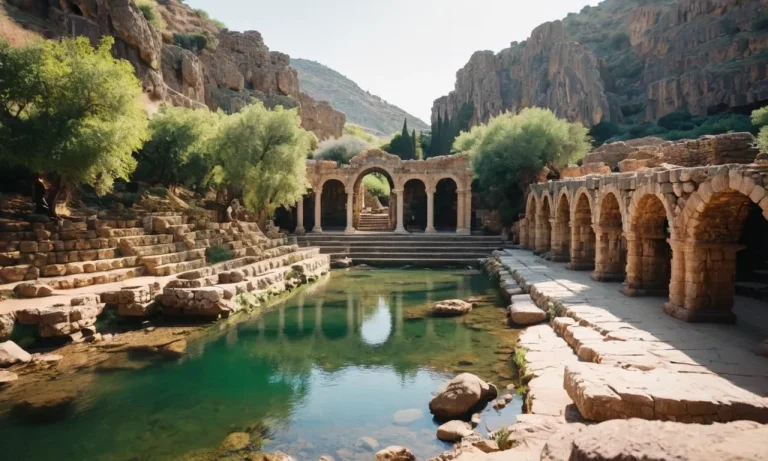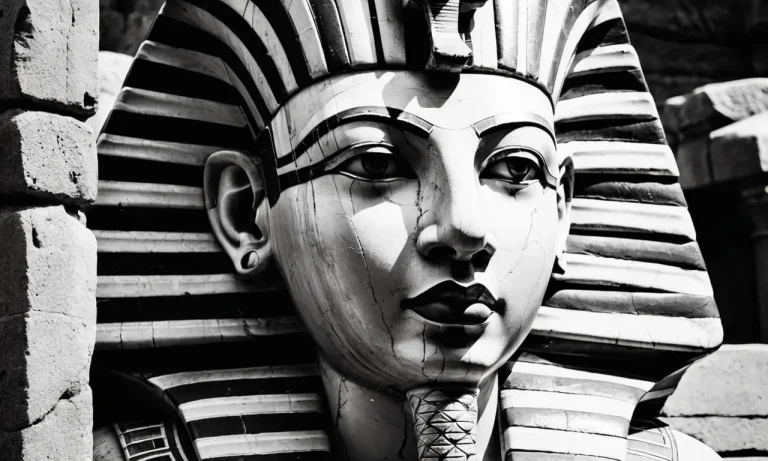The Rise Of The Songhai Empire: From Humble Beginnings To West African Dominance
The Songhai Empire was one of the largest and most powerful empires in West African history. If you’re short on time, here’s a quick answer to how the Songhai Empire rose: The Songhai people started off as fishermen and traders along the Niger River, then expanded control over surrounding lands and gained power as generals in the Mali Empire.
Under the rule of Sunni Ali Ber, the Songhai rapidly expanded their territory through military conquests across West Africa.
In this comprehensive article, we will trace the origins of the Songhai people, follow their steady rise in regional influence and power, chronicle the military exploits and reforms of Sunni Ali Ber, and analyze the factors that enabled this once small kingdom to build an empire that dominated West Africa for nearly 200 years.
The Early Songhai: Humble Beginnings as Fishers and Traders
Settlement Along the Niger River
The Songhai people originated as a fishing and trading community along the lush banks of the Niger River in the early 900s AD. This great river, the third longest on the continent, served as a natural highway for transport and commerce through West Africa.
The Songhai settlers strategically established themselves in the riverbend region near the historic Malian trading center of Gao, where they could gain access to valuable foreign imports like salt and North African goods.
From these humble beginnings, the early Songhai sustained themselves through fishing the plentiful waters of the Niger and also trading dried fish for agricultural goods from their neighbors. By the 1100s, they had firmly rooted themselves along the river and began to rise in regional prominence.
Rise to Regional Prominence Through Trade
The early Songhai chieftains recognized the profit potential that lay along the Niger River trade routes. As business acumen grew within the tribe, Songhai fishing canoes gradually transformed into transport vessels for goods.
Their expanding fleets moved products from forest regions down to major consumer markets near Timbuktu and Djenné.
This merchant activity brought increasing wealth and status to the budding Songhai empire throughout the 1200s. Trade in the salt, gold, kola nuts and slaves enabled the Songhai economy to boom and transform the Niger River into a virtual “oil well” of medieval West Africa. Soon, the former fishing villages would become the headquarters of imperial governors and generals.
The tribal villages had unified into a recognizable Songhai identity by 1300 AD. According to records from famed 14th century North African traveler and scholar Ibn Battuta, the rising Songhai tribes had established themselves as a formidable military and economic force in the Western Sudan region.
Songhai Generals Gain Power in the Mali Empire
The Songhai Empire emerged out of the remnants of the Mali Empire in the late 14th century. As the Mali Empire declined in the late 1300s, powerful Songhai clans began exerting more influence and control over western Sudan.
Songhai generals and administrators who had previously served the Mali kings began to gain more autonomy and power in the region.
One of the most renowned Songhai leaders to rise to prominence during this time was Sonni Ali Ber. Ber started his career in the Mali government as a commander and eventually worked his way up to assume the title of farba – governor of the important Niger River trading post Gao.
Though still technically under the authority of the Mali emperor, the farbas of Gao had already grown extremely powerful by the late 14th century.
From his base at Gao, Sonni Ali Ber began conquering many of the lands surrounding the Niger River. He annexed Timbuktu in 1468 and eventually took much of the vital Niger River trade routes under his control.
By 1473, Sonni Ali Ber ruled a domain that stretched over 1,000 miles from eastern Senegal to western Nigeria – rivalling the conquests of even the greatest Mali kings.
After Sonni Ali Ber’s death in 1492, his heir Askia Mohammad I assumed the throne and expanded the empire even further. At its peak, the Songhai Empire under Askia Mohammad would control and tax trade along nearly the entire length of the Niger River, establishing economic dominance over West Africa for decades.
It was one of the largest and most powerful empires ever established south of the Sahara.
Rapid Expansion Under Sunni Ali Ber
Conquest of Timbuktu and Jenne
In the mid-15th century, Sunni Ali Ber emerged as the first great ruler of the Songhai Empire. He embarked on a series of conquests to expand the reach of his kingdom. In 1468, Ali Ber conquered the bustling center of Islamic scholarship at Timbuktu.
He then turned his sights on Jenne, an extremely wealthy trading hub along the Niger River. After a seven month siege, Ali Ber’s forces finally captured Jenne in 1473, gaining control over its prosperous markets.
The conquests of these two famed commercial cities allowed the Songhai Empire to dominate trade in the western Sudan region.
Control Over Trans-Saharan Trade Routes
By gaining Timbuktu and Jenne, Ali Ber now controlled the main western terminals of the trans-Saharan trade routes. Goods like gold, salt, copper, cowrie shells, textiles, and slaves were transported across the desert to be traded in these cities.
The Songhai Empire was able to benefit greatly by taxing the merchants using these routes. Ali Ber also established a royal monopoly over certain commodities, requiring merchants to sell goods like gold and slaves to the state at fixed prices.
Consequently, the Songhai Empire accumulated immense wealth from the taxes and tributes extracted from trade passing through its territory.
Centralization of Power and Military Reforms
Ali Ber was a great military innovator and organizer. To support his expanding empire, he centralized power by appointing trusted servants to govern conquered territories. He also established a full-time army of cavalry units known as the ton-tigi or “quiver bearers”.
This permanent and mobile force of mounted archers and lancers gave the Songhai Empire a military advantage over its rivals. Ali Ber further strengthened his army by using boats known as garamantes armed with cannons to patrol the Niger River, protecting trade routes from pirates.
Administration and Infrastructure Support Growth
Efficient Tax System and Agriculture
The Songhai Empire implemented an efficient tax system that generated significant revenue while not overburdening the population. They taxed salt and gold from the mines and also collected taxes on trade goods transported along the Niger River.
This tax revenue allowed them to invest in infrastructure like roads and irrigation systems.
Agriculture flourished with investments in irrigation and flood control. Surplus crops strengthened the economy and allowed the empire to feed a growing population. Major crops included rice, millet, sorghum, yams, cotton, livestock, and fish from the Niger River.
Promotion of Islam Facilitates Trade
Islam spread rapidly during the growth of the Songhai Empire. Muslim traders traveled extensive trade routes across West Africa and beyond, facilitating economic growth through commerce. The empire strategically centered itself along Saharan trade routes prized by Muslim merchants.
As Dr. Niane from Historical Traditions in West Africa stated, “The conversion of the Songhay princes had enabled Islam to penetrate more deeply into West Africa.” Promoting Islam strengthened ties with Muslim trade partners in North Africa and the Middle East.
Significance and Legacy of Songhai Dominance
At its peak in the late 15th/early 16th century, the Songhai Empire was larger than Western Europe and controlled major trade routes across West Africa. The thriving economy and strong military allowed them to dominate trade and extract wealth from conquered lands.
The empire left an enduring political and economic legacy in West Africa. They maintained relative peace and stability until falling to invaders in 1591. Culturally, they helped facilitate the spread of Islam across diverse ethnic groups.
Modern day Timbuktu remains an important center of Islamic scholarship in Africa.
Conclusion
In conclusion, the Songhai Empire was able to rise from humble beginnings along the Niger River to gain control over a vast territory in West Africa through economic influence, shrewd diplomacy and politics, military dominance under Sunni Ali Ber’s rule, and effective state administration.
At its peak, the Songhai matched the empires before it like Ghana and Mali in territory and surpassed them in organization and efficiency. The Songhai story is one of the great empire building cases in medieval African kingdoms.








